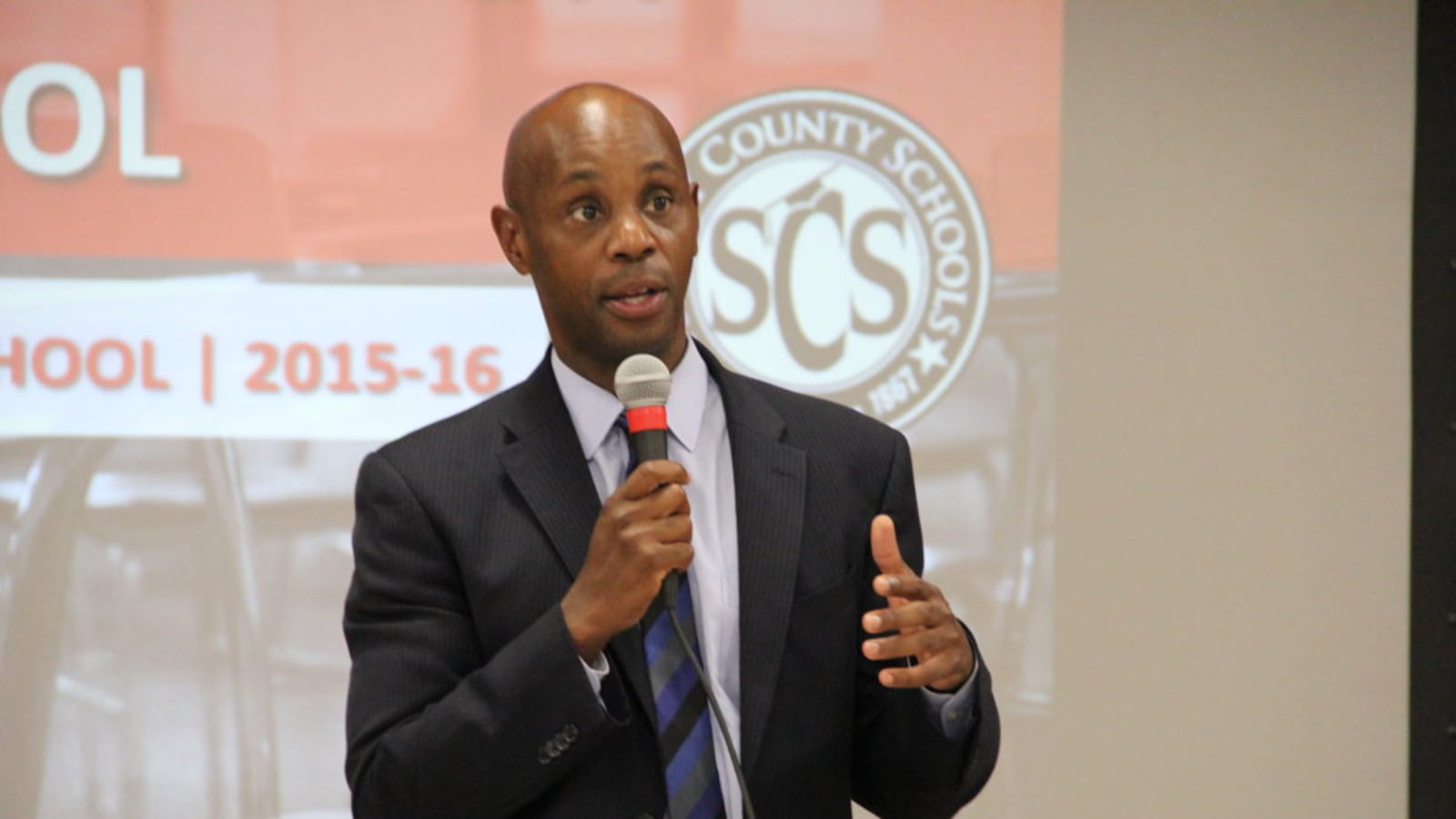As budget season kicks off for Shelby County Schools, Superintendent Dorsey Hopson is warning employees that the cash-strapped school system faces a “dire situation” and urging them to advocate for increased funding from county and state governments.
In a letter emailed late last week to 14,500 employees, Hopson said the district’s projected budget gap for next school year is about $40 million — a gap that will be hard to close without directly impacting classrooms.
“We’ve had to make very difficult decisions over the past few years to ensure our cuts do not affect the classroom, including closing schools with low enrollment, significantly reducing Central Office staff, outsourcing some District services and cutting more than $200 million out of the General Fund Budget, which could’ve been used to provide additional support to our students,” Hopson writes.
“… But this year could be different. Without significant funding from the Shelby County Commission or the State of Tennessee, it will be difficult to avoid cuts to our classrooms.”
Hopson will present his proposed spending plan during a school board work session this Wednesday, but emphasized that the proposed budget is not final and that “cuts can still be avoided.”
He encouraged employees to contact county commissioners and state lawmakers to ask for more funding. He also directed them to a website developed with community partners to serve as a hub of information during the process. The website, launched last week and titled “Students Deserve More!,” details what the district says is a lack of adequate investment from the city, county and state. It also gives an overview of potential cuts:
- A decrease in benefits for educators and staff
- Fewer assistant principals and building leaders at smaller schools
- More school closures
- Reduction in summer school offerings
- Decrease in pay for substitute teachers
- Adjusting mileage (distance) requirements for students receiving bus transportation
- Outsourcing more district services
- Eliminating more central office jobs (central office staff makes up less than 2 percent of the district’s budget, according to the website)
The Hopson-endorsed campaign reflects ongoing tension between the district and local and state governments over the adequacy of school funding, as well as the spending habits of school leaders. Increasingly across Tennessee, local government leaders say they’re picking up too much slack for the state when it comes to funding the true cost of K-12 education. Last August, Shelby County’s school board sued the state over its education funding plan known as the the Basic Education Program, or BEP, charging that the state is not equitably and adequately funding public education for all students. However, Gov. Bill Haslam says the state has been increasing education spending annually during his administration at a time when many state governments are cutting back.
In Shelby County, the “Students Deserve More!” campaign represents an escalated level of community organization beyond past efforts.
“I’ve never seen anything like this before coming from Shelby County Schools,” said state Rep. Raumesh Akbari of Memphis. “I’m hoping it will at least be a beginning of getting parents involved in the process. … Between the state and county, we should be able to come up with a solution so that we don’t have our children suffering.”
Commission Chairman Terry Roland said the campaign won’t make much difference from his perspective, however.
“I’m making my decisions based on dollars and cents. We can’t break the county and give (the district) everything they want,” Roland said. “The state is causing this problem because the state is not fully funding the BEP.”
Roland said additional county dollars shouldn’t be needed when other cuts could be made, such as consolidating several schools that are under-enrolled. When Shelby County administrators went to the commission last year seeking an extra $14 million, they received about half of that.
“If you gave the schools every dime they asked for, it’s a never-ending hole and we’re not going to fill it,” Roland said. “You can’t keep asking for money when you can’t spend what you get right.”
County Mayor Mark Luttrell said late last week that he encourages community engagement about education but will reserve judgment about the district’s budget needs until he sees its final spending plan, scheduled to come before the commission on May 25.
“I’m hoping as they look at their needs, that deficit will be narrowed,” Luttrell said, adding that commissioners will have lots of questions. “It should be a healthy dialogue; it usually is.”


